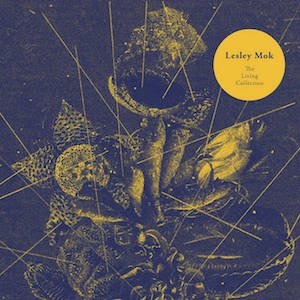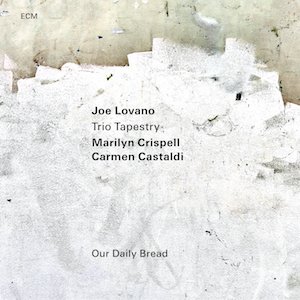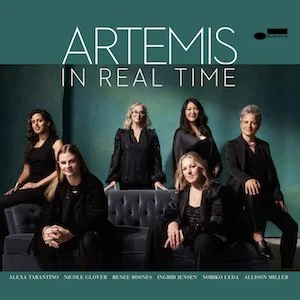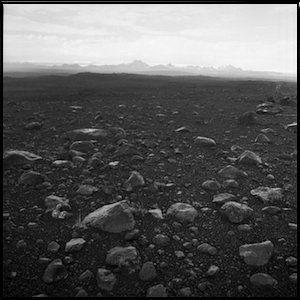Label: American Dreams, 2023
Personnel - David Leon: alto and soprano saxophones, flutes; Yuma Uesaka: tenor saxophone, clarinets; Adam O'Farrill: trumpet; Kalun Leung: trombone; Cory Smythe: piano; Joanna Mattrey: viola; Aliya Ultan: cello; Florian Herzog: bass; Weston Olencki: electronics; Lesley Mok: drums.
Mounted with an exciting lineup of ten explorative musicians, the full length debut CD by the up-an-coming drummer and composer Lesley Mok is a singularly personal statement whose unconventional concept promotes an alternative integrity of sounds. Her fearless approach to prompts and responses offered by each improviser allows synchronicity and dissonance. This creates conditions to include both lyrical subtleties and various jazzscapes served with serpentine logic.
What she calls a sonic ecosystem starts off with “It Wants”, where electronics mix with scratching and brushing sounds and a range of distinct gong-like resonances. Ingenious pianist Cory Smythe steps in with conspicuous cluster chords turned supple textural lyricism. The horn players integrate themselves into the netting, eager for a nimble dance with the wind breeze.
Equally eschewing fireworks in favor of a contemplative avant-garde restraint, “The Furious Place” takes shape out of a subdued yet directional rhythmic flow with the help of horn popping sounds. There are sparse long tones from which violist Joanna Mattrey and flutist David Leon stand out, pointing out the way to the ebb and flow that follows. “Again, All” develops as a mysterious dream, brushed into a sparkling continuum of cymbals and having gorgeous statements by trombone and saxophone reversing the understatement of the extremities.
Considerable space to play is found on “Of Appearance”, a jazzier cut with waling bass and a cadence of drumming that serves the intervallic undertaking and pitch contrasts of trumpeter Adam O’Farrill and clarinetist Yuma Uesaka. The former is also at the fore in the totally improvised “Its Silvery After Tomorrow”, which, delivered in trumpet-bass-drums format, ends in contrapuntal feast with terse brass phrases, bowed bass and brushed snare. Additionally, “Quite a Spectacular Dusk” is like a final whisper, embracing a quiet stillness with hushed tones but ending in awe via rhythmic accents and kinetic woodwind activity.
The flourishing “Floral and Full” is a showcase for motivic ideas, percussive responses, modern classical persuasion, taut drones, and free-wheeling exchanges between trombone and clarinet.
In her own way, Mok is a progressive-leaning creator whose Living Collection work makes for an auspicious debut. I look forward to listening to what she brings next.
Favorite Tracks:
03 - Again, All ► 05 - Of Appearance ► 09 - Quite a Spectacular Dusk








































